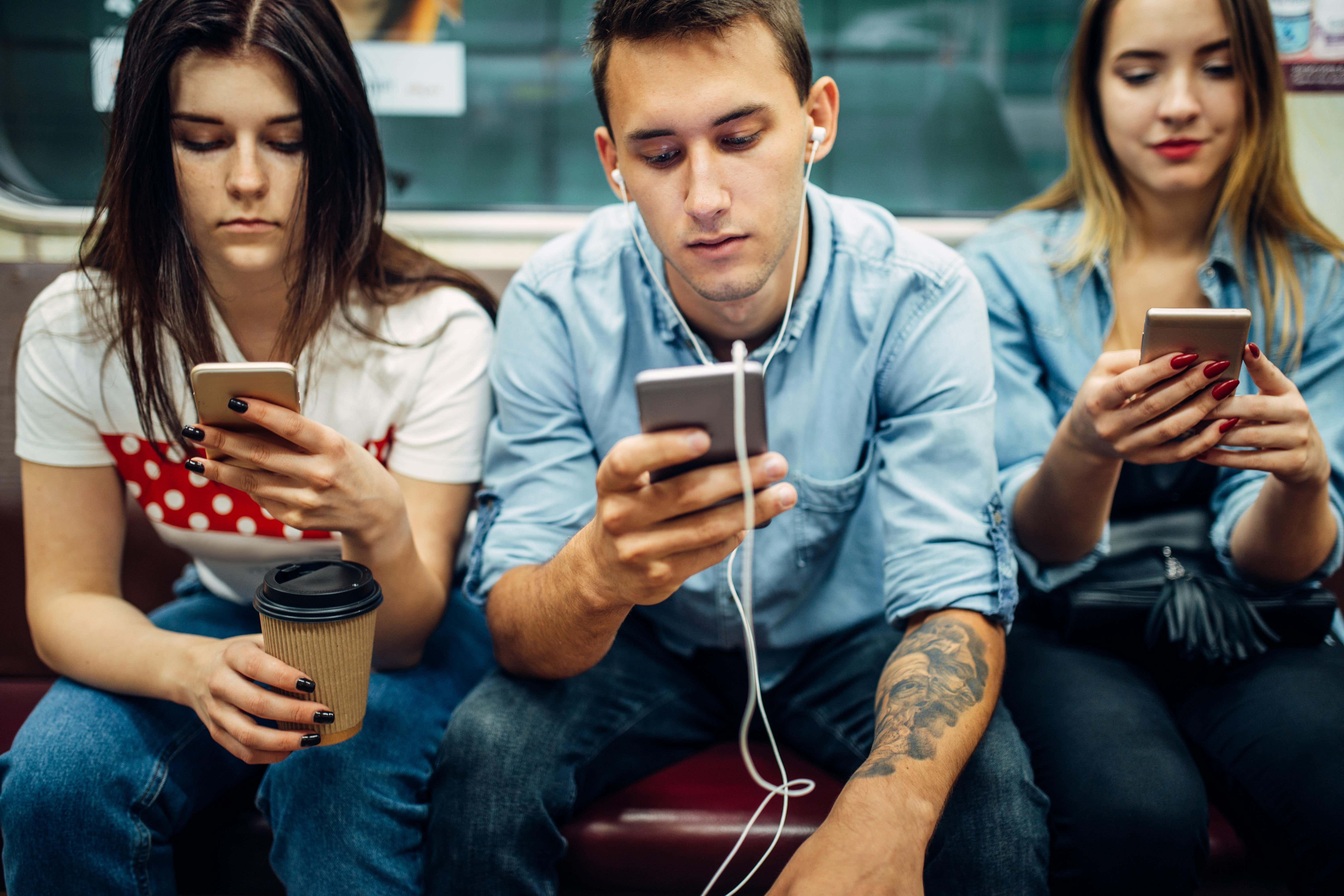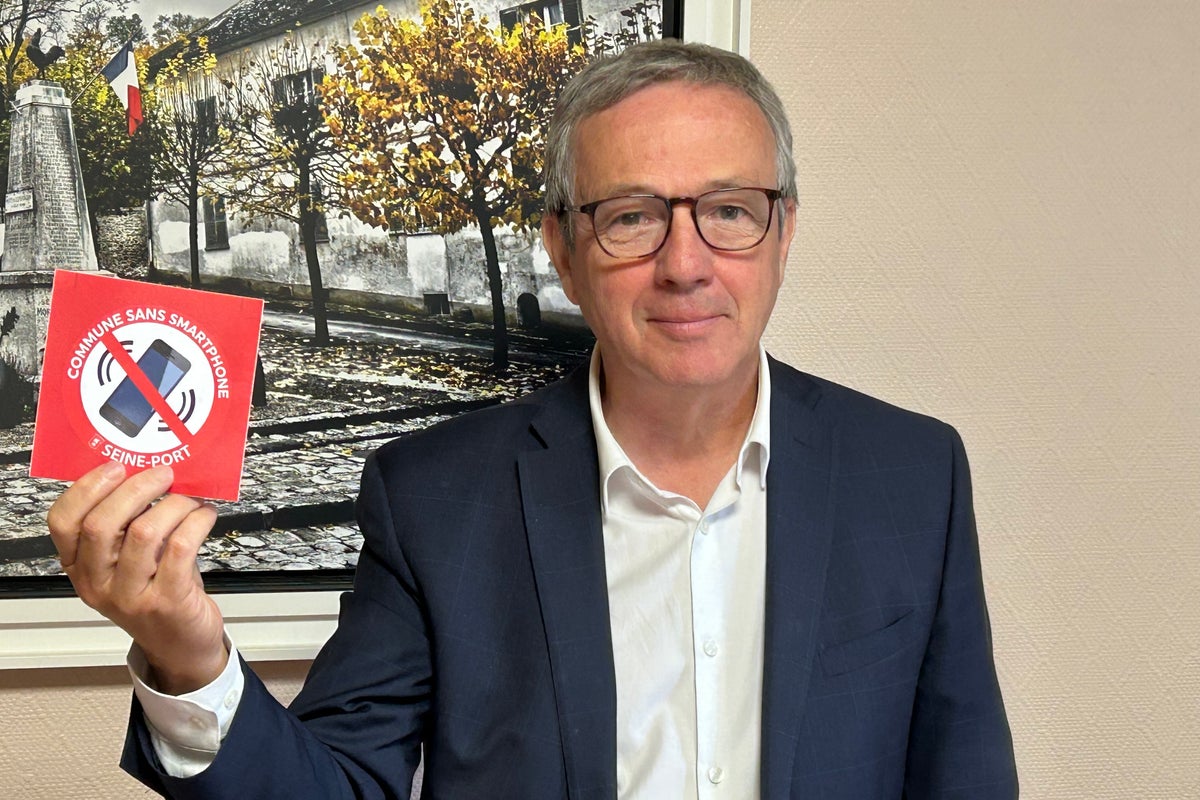In a sleepy village just outside Paris, the local Mayor is handing out brick phones to a crowd of bemused teenagers.
Last year, residents of Seine-Port voted in a referendum to ban smartphone use in public. The decision was driven by a noble cause: to wrestle villagers young and old away from devices that increasingly consume every minute of their daily lives.
Announcing the decision, Mayor Vincent Paul-Petit pledged to halt the “smartphone invasion”. But nineteen months after its implementation, he fears it could cost him the local election next March.
“It is not easy for people to accept the mayor removing smartphones from their lives,” he told The Independent.

Under the rules he introduced, villagers are not legally banned from using smartphones but business owners including butchers and bakeries are encouraged to refuse service to anyone scrolling on their phones. He claims many locals obey these orders “politely”.
Phone calls are permitted on the streets, but residents are expected to avoid scrolling on the internet. The town also provides teenagers with a phone that can only make calls on the condition that their parents do not buy them a smartphone. Around half of all families in the village have opted in, according to the mayor, with a new framework restricting children from using their phones in the morning before bed, in the bedroom and while eating dinner.
Mr Paul-Petit, who belongs to the centre-right Les Républicains party, has faced questions over whether he has an acceptable mandate for such a drastic intrusion into villagers’ lives. Seine-Port has a population of around 1,900 people but jut 20 per cent of the village’s electoral register turned out to vote for the ban – meaning approximately 150 people were responsible for the decision.
He is well aware the ban was a controversial move. “Some parents do consider that it is their own business, that it’s not a subject to be addressed by the Mayor. Others of course consider, and that’s my perspective, that they need help to resist the digital tsunami,” he said.

Nevertheless, Mr Paul-Petit expects to be punished at the polling booth. “It will not bring me any additional support,” he said.
Still, he believes the town is a better place for having banned phones and said the policy was a response to growing calls to protect young people from digital addiction.
“I know some parents say (to their children) ‘the Mayor says no, it is forbidden, so you don’t have a smartphone’, and I think that’s great.”
He said some parents were pleased “to get support in the fight they are facing to protect their own children from this digital tsunami.”
Experts fear that smartphone addiction could soon become an epidemic among children. A study published in the Journal of Medical Internet Research found that 57 per cent of French people aged 18-39 showed signs of addiction, while 67 per cent of French adults exhibited compulsive smartphone use.
Mr Paul-Petit says he has noticed a change in behaviour since introducing the policy and improved communication in the village. The two main successes of the ban have been people staying off their phones in shops and schools.
He also claims the ban has helped two teenagers he knows get rid of a “severe digital addiction”.

But for many people, he says the ban is seen as “a joke”.
“A lot of people don’t always understand why a mayor is doing this,” he said. “But others say ‘thank you’. Each family is facing some difficulty in managing these tools.”
His town is not the only one to attempt such an ambitious policy. Last month, Toyoake, in Japan, submitted a bill to its local assembly to propose limiting smartphone usage to two hours per day.
Toyoake’s Mayor, Masafumi Koki, appears to be facing the same dilemma as Mr Paul-Petit. The town received more than 120 calls and emails in just the first four days of the announcement, with about four in five expressing opposition.
While phone bans outside the small town of Seine-Port have yet to extend to the over-18s, many countries have seen a clampdown on their usage in schools, with blanket bans in place in several countries.
Schools in New Zealand, Spain, the Netherlands, and several parts of the United States have all faced restrictions in the classroom, with Australia taking it one step further in December as it imposes an outright ban on social media for under-16s.
But Mr Paul Petit has a word of advice for Mr Koki and any other leader who may be seeking to introduce a similar ban.
“It will not make you a popular mayor.”



